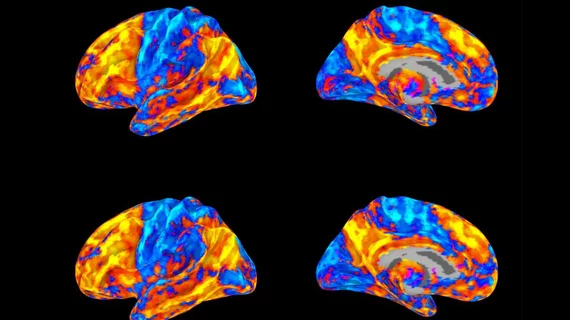Through MRI analysis, researchers from Duke University found that poor communication between multiple regions in the brain's visual cortex increases the risk of developing mental illness.
These findings may help researchers target treatment and therapies to where they are most needed, according to a Duke University press release published May 9.
“You don’t typically associate visual processing with psychopathology,” said Maxwell Elliott, a graduate student in psychology and neuroscience at Duke, in a prepared statement. “We found evidence that visual areas may be related to mental illness by virtue of their ability to communicate information between two higher-order cognitive networks.”
The team of researchers analyzed data from 605 university students who were asked to spend 10 minutes in an MRI scanner while the blood flow in their brains was recorded. The participants also submitted a mental health assessment, which researchers used to estimate each participant's "p-factor" score.
"The p-factor reflects recent observations that people with symptoms of one psychiatric disorder, such as anxiety, are also more likely to report symptoms of one or more additional psychiatric disorders, such as depression or bipolar disorder," according to the release.
Each participant's p-factor scores were then compared to functional circuitry in their brains taken from the MRI. What the researchers found was participants who had a higher p-factor score also had four regions in the visual cortex that didn't communicate well together.
This transcends to negatively affecting their focus, planning and introspection, which has been linked to severe forms of mental illness, according to the release.
"In order to filter visual information and stay focused on a task, these higher order networks need to work with your visual networks to tell it to ignore, say, the blinking light outside, and keep giving us information about what matters most for a given task at hand," Elliott said. "The more we can map the p-factor onto the brain and understand how it influences mental illness, the more we can come up with novel ways of intervening."

